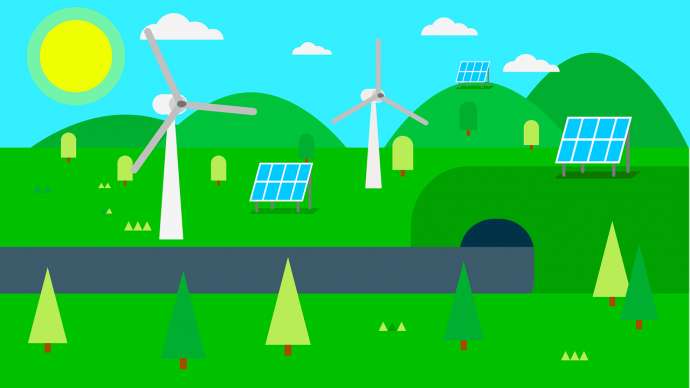STA, 13 May 2021 - Slovenia plans to diversify its energy sources after the Covid-19 pandemic has highlighted the need for greater resilience. Environment Minister Andrej Vizjak counts in particular on solar and hydro power, and waste incineration.
Then minister noted at an online green energy summit on Thursday that the transition to alternative sources of energy brought certain challenges which were being addressed in the resolution on Slovenia's climate strategy until 2050, which the government confirmed in April.
The primary objective is to invest in renewables, and to utilise the remaining hydroelectric power potential in the country, Vizjak said, adding that there were also many opportunities in solar energy for covering a part of household consumption.
The minister noted that the problem with the latter was that, like wind, it was not always available in a sufficient quantity. This is the weakness of alternative sources of energy that policy makers need to be aware of, he added.
The document thus assesses that strong and reliable sources of electricity are required, and in the long run the state wants to continue investing in nuclear energy and in synthetic gases, including hydrogen.
Also important in the transition to green energy, according to Vizjak, is efficient energy management both in households and industry. Production units in Slovenia urgently need low-carbon transformation, he said.
According to the minister, the key segments of the green transition strategy are transport and consumption by households. As for the former, the goal is to boost public transportation, e-mobility and transfer of cargo from road to rail.
Vizjak noted that an important part of the recovery and resilience plan was waste management, including incineration of sludge from wastewater treatment plants and mixed municipal waste.
This is meant to compensate for the existing production units that use fossil fuel for supplying heat for Ljubljana and Maribor. A transition is planned to mixed municipal waste, he said.







